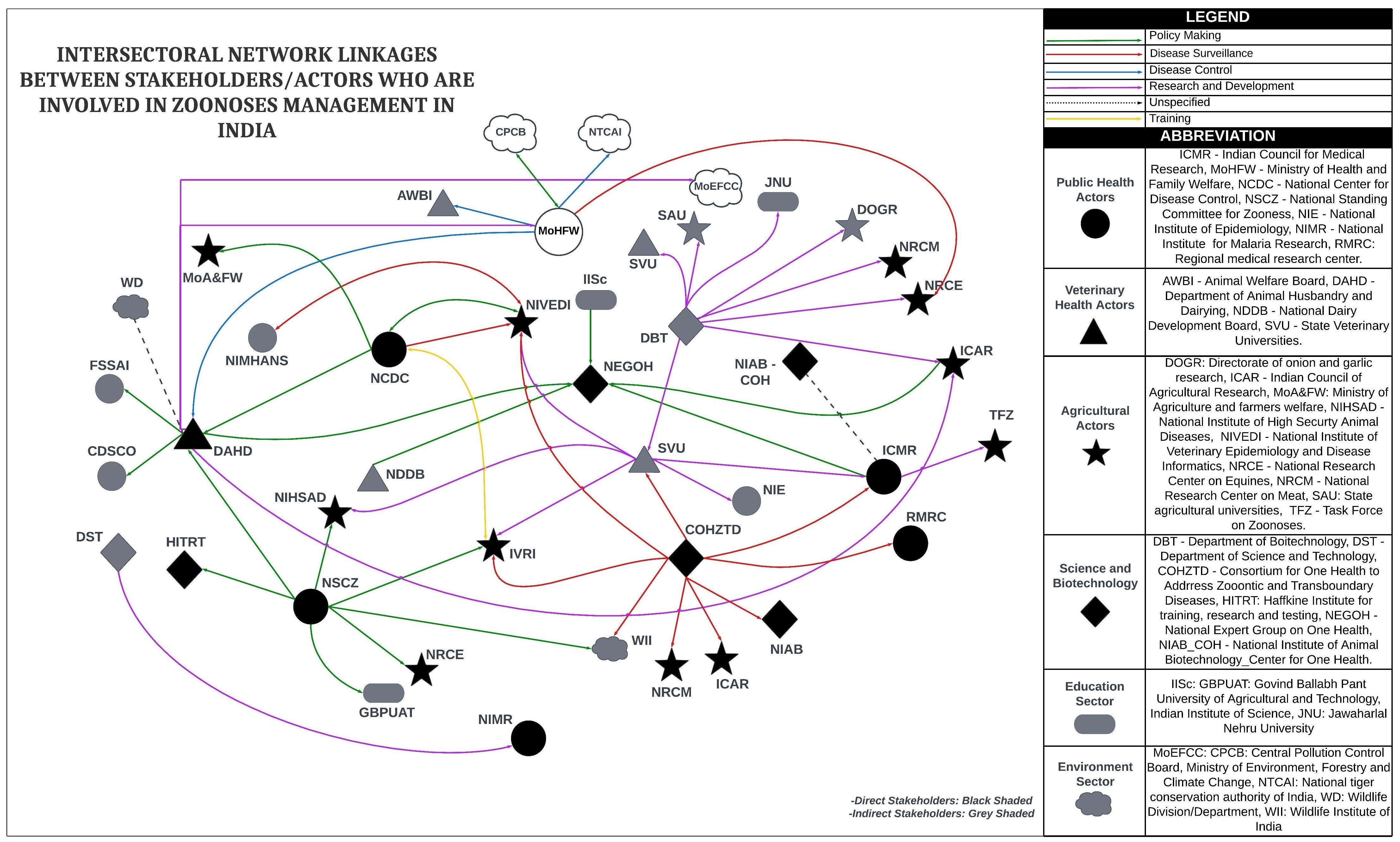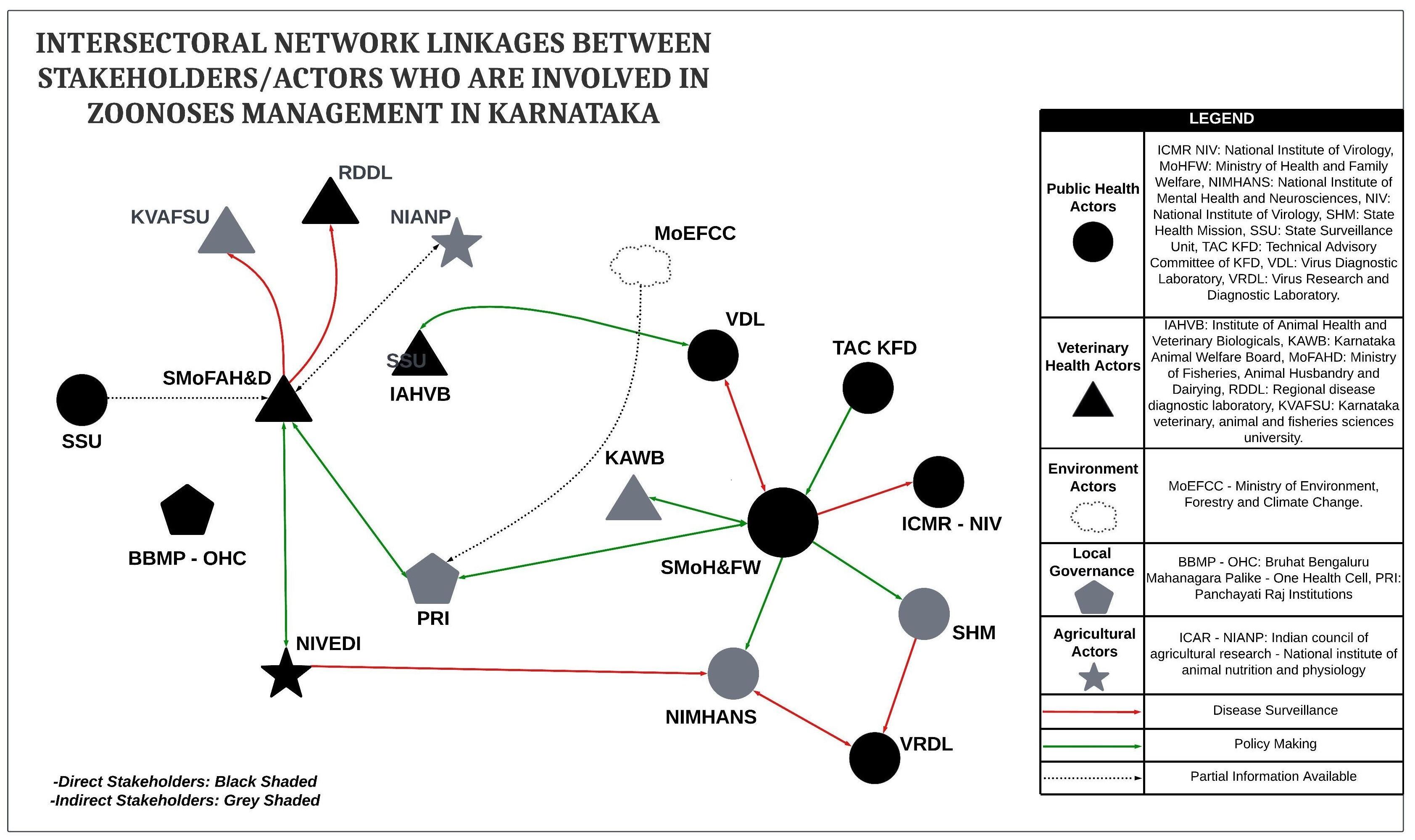WP6a. ‘One Health’ stakeholder ecosystem for zoonoses management
Tackling the threat of emerging zoonotic disease risks points towards the importance of advancing cross-sectoral collaboration as a plausible pathway for effective disease prevention and control. Yet, most developing countries lack effective structures foresting and sustaining coordination and collaboration across the animal, human health and environment sectors. Leveraging the IndiaZooRiskplus coproduction production process, we will map the ‘OneHealth’ stakeholder ecosystem (Figs. 1/2), identifying the existing structures, programmes and cross-sectoral network linkages with the view of developing a policy-influencing pathway for informing future One Health institutionalisation in India.


